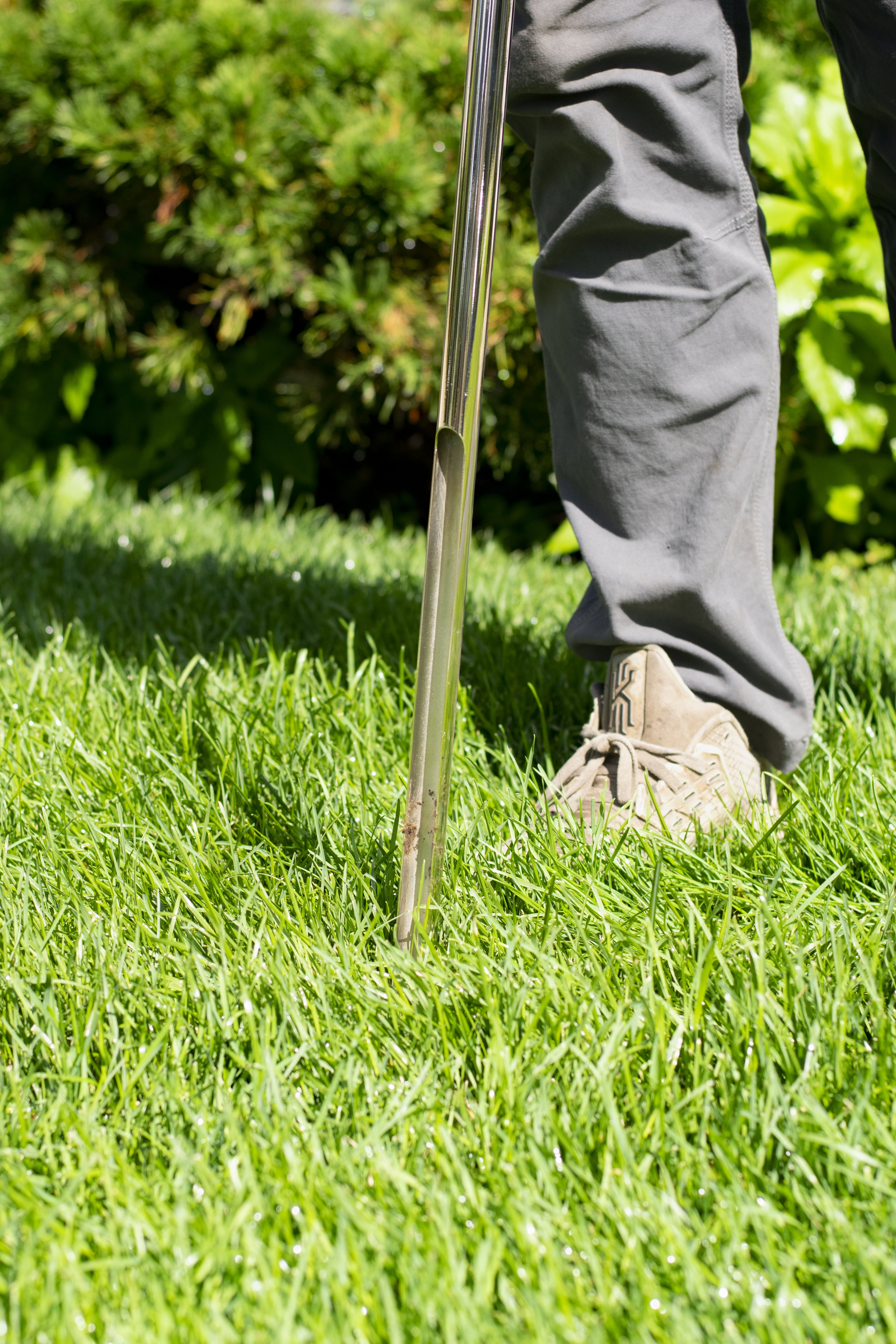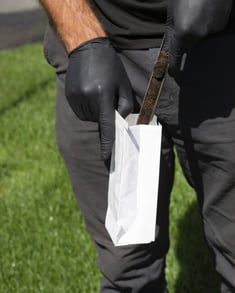Maintaining a healthy, green lawn requires more than just regular watering and mowing. Proper soil care is crucial to achieving a beautiful and healthy lawn. In this blog post, we'll explore the importance of soil testing for organic lawn care.

Why is soil testing important for organic lawn care?
Soil testing is an essential tool for organic lawn care because it provides valuable information about the soil's composition, pH level, and nutrient levels. By understanding these factors, you can make informed decisions about the type and amount of fertilizer and other soil amendments needed to promote healthy lawn growth.
For example, if your soil has a low pH level, it may need to be treated with lime to increase the pH and make it more alkaline. If your soil has a high pH level, it may need to be treated with sulfur to make it more acidic. Soil testing can also reveal nutrient deficiencies or excesses, which can be corrected by applying the right type and amount of organic fertilizer.
Organic lawn care is all about working with nature to promote healthy soil and plant growth. Soil testing is an essential tool for achieving this goal because it allows you to tailor your lawn care approach to the specific needs of your lawn.
How is soil testing done?
Soil testing typically involves collecting a sample of soil from your lawn and sending it to a lab for analysis. The lab will test the soil for several key factors, including:
pH level: Soil pH is a measure of how acidic or alkaline the soil is. Most lawn grasses prefer a pH between 6.0 and 7.0.
Nutrient levels: Soil testing can determine the levels of essential nutrients, such as nitrogen, phosphorus, and potassium, as well as micronutrients like iron, manganese, and zinc.
Soil type: Soil type refers to the composition of the soil, including the amount of sand, silt, and clay it contains.
Organic matter content: Soil organic matter is the decaying remains of plants and animals. It helps to improve soil structure and fertility.
Based on the results of the soil test, you can then adjust your lawn care practices to meet your lawn's specific needs.
At Pure Solutions, we understand the importance of so il testing for maintaining a healthy lawn. That's why we offer soil testing as part of our comprehensive organic lawn care services.
il testing for maintaining a healthy lawn. That's why we offer soil testing as part of our comprehensive organic lawn care services.
Our soil testing services will provide you with a detailed analysis of your lawn's soil composition, pH levels, and nutrient levels. Based on the results, our expert team will recommend the best course of action to improve your lawn's health and promote optimal growth.
By signing up for our organic lawn care services, you'll be taking a step towards a healthy and vibrant lawn without the use of harsh chemicals or synthetic fertilizers. We use only the highest quality organic products to promote healthy soil and plant growth, so you can enjoy a beautiful lawn that's safe for your family, pets, and the environment.
Contact us today to learn more about our soil testing services and how we can help you achieve the lawn of your dreams.
Sources:
"Soil Testing for Home Lawns," University of Minnesota Extension, accessed March 28, 2023, https://extension.umn.edu/planting-and-growing-guides/soil-testing-home-lawns.
"Soil Testing: A Guide for Home Lawns," Penn State Extension, accessed March 28, 2023, https://extension.psu.edu/soil-testing-a-guide-for-home-lawns.
"The Importance of Soil Testing in Lawn Care," The Spruce, accessed March 28, 2023, https://www.thespruce.com/importance-of-soil-testing-in-lawn-care-213227

